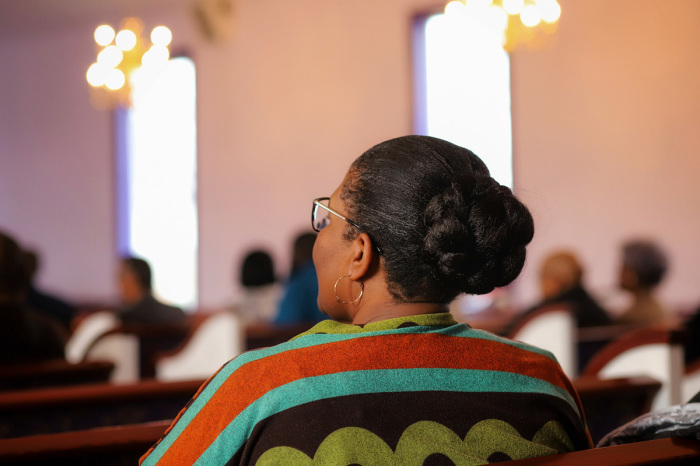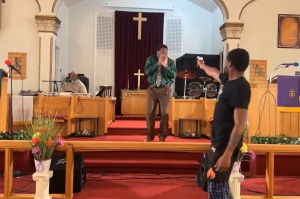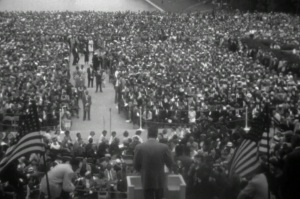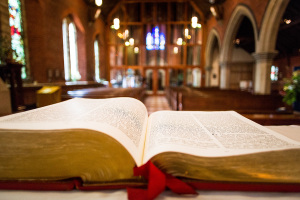Majority of pastors say they want racially diverse congregations, but few are finding it in reality: study

While a majority of Protestant pastors say churches should be racially diverse, most of their churches continue to be made up of predominantly one racial or ethnic group, according to newly released data from a Lifeway Research study.
A multiracial congregation is defined as one where no one racial or ethnic group comprises more than 80% of the congregants.
While 22% of pastors reported at least some racial or ethnic diversity in their churches, reflecting an increase over the 13% that did in 2017, Lifeway Research’s survey of 1,000 Protestant pastors last September shows that 76% of respondents said their churches are predominantly made up of one racial or ethnic group.
When Lifeway conducted a similar study in 2017, 93% of pastors said every church should aim to achieve racially diverse congregations. But in their most recent measure that sentiment dropped to 88%. And the decrease was most striking among Protestant pastors who strongly agree that churches should be racially diverse.
In 2017, 80% of pastors strongly agreed that churches should aim for racial diversity, but only 68% strongly agree today. There was an increase, however, among pastors who somewhat agree, from 13% to 20%, over the same period.
“The peak of pastor aspiration for more racial diversity in churches was measured just days after a white supremacist rally in Charlottesville, Virginia, in 2017 where clashes with opponents ended in one death and injuries,” said Scott McConnell, executive director of Lifeway Research in a statement. “While such events that year reminded pastors of the need for progress on racial reconciliation, there remains a consensus among pastors that this unity should be seen within their churches each week.”
The study found that pastors aged 44 and younger were more likely to support racially diverse churches than their older counterparts.
More than any other racial group of pastors, African American pastors at a rate of 97%, said there is a need for racial diversity within churches compared to 87% of white pastors and 83% of pastors of other ethnicities.
African American pastors were also found to be the most likely group to say they preach on racial reconciliation several times a month, at 21%.
In general, some 40% of pastors in the survey reported that they preach on racial reconciliation several times a year. Nineteen percent said they preach on it at least once a month, while 25% of pastors still say they rarely or never preach on racial reconciliation.
“Attitudes, cultural traditions, and friendships within the community do not change by themselves,” McConnell said. “If someone doesn’t call for change, it won’t happen. Most pastors are casting this vision, but about a quarter of pastors aren’t.”
Looking at the progress of racially diverse congregations over a longer period, a study released by Baylor University in 2020 found that the number of these congregations in the U.S. had tripled in 20 years with approximately a quarter of Evangelical and Catholic churches now being multiracial.
The study included a sample of more than 5,000 congregations, and sociologists from Baylor, Duke University and the University of Illinois at Chicago analyzed data from the National Congregations Study, collected in 1998, 2006-2007, 2012 and 2018-2019.
“More Americans are attending religious services with others who do not look like them,” Kevin D. Dougherty, associate professor of sociology at Baylor University noted in a statement at the time. “The increase is slow but steady, and there is no sign that we’ve reached a plateau.”
Despite the increase in the number of multiracial congregations, the researchers raised concern that white pastors continued to be overrepresented in the pulpits at a rate of 76%, and worried about whether racial reconciliation was truly happening.
According to the study released by Baylor: 10% of mainline Protestant churches were multiracial, up from 1%; 22% percent of Evangelical congregations were multiracial, up from 7%; 16% of Pentecostals are multiracial, up from 3%; 23% of Catholic churches were multiracial, up from 17%; and less than 1% of black Protestant churches were multiracial in 1998 or 2019.
Michael O. Emerson, a professor of sociology at the University of Illinois at Chicago, noted that black congregations appeared to have a harder time desegregating as it appears white Christians are less willing to join predominantly black churches.
“The path to diversity seems to be a one-way street, with people of color joining white congregations but very few whites joining black churches,” Emerson said. “Until congregations confront the historic structures that keep racial groups divided, diversity inside congregations may function mainly as a superficial performance.”




























